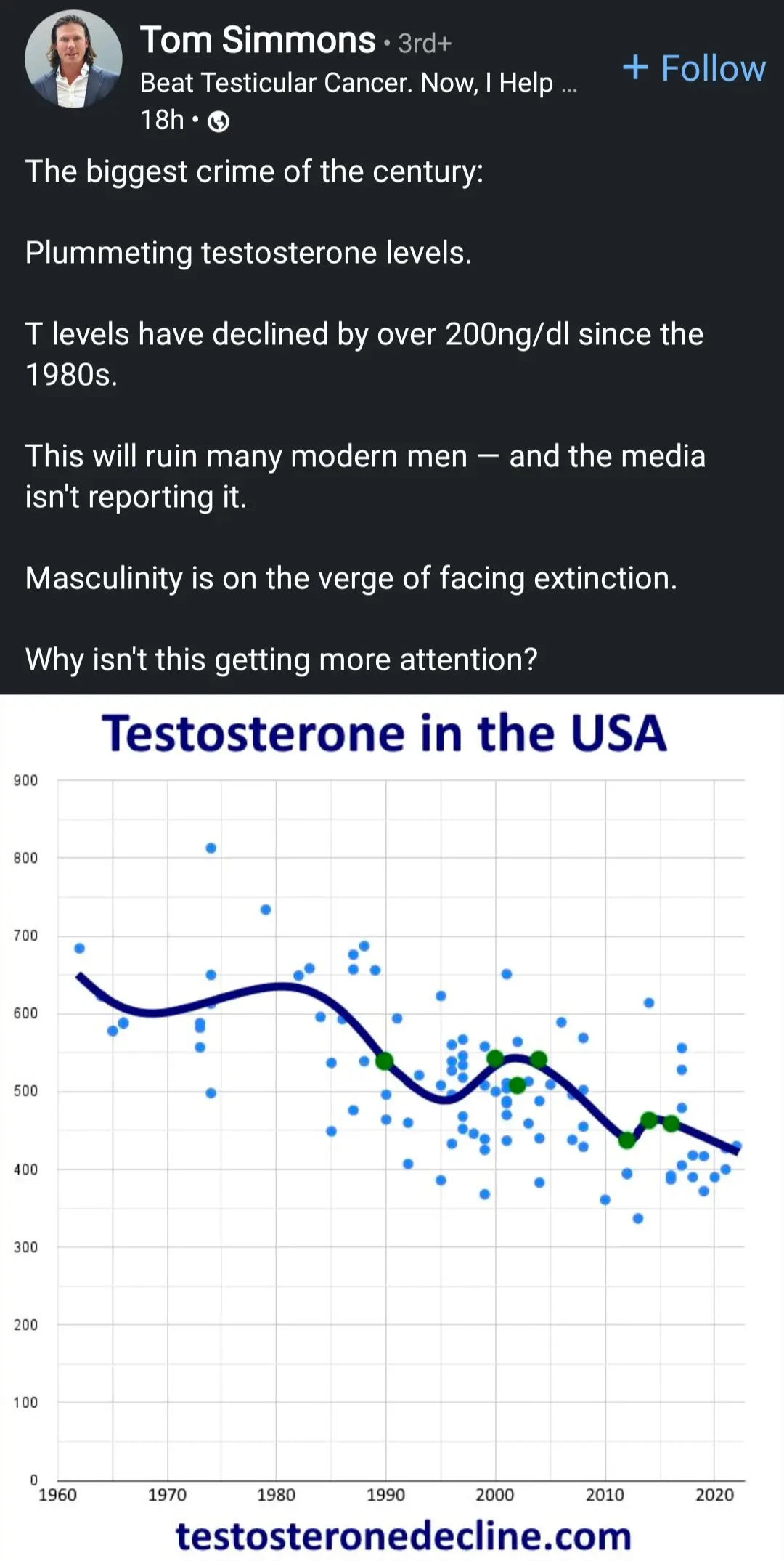this post was submitted on 13 Apr 2024
308 points (92.8% liked)
LinkedinLunatics
3562 readers
5 users here now
A place to post ridiculous posts from linkedIn.com
(Full transparency.. a mod for this sub happens to work there.. but that doesn't influence his moderation or laughter at a lot of posts.)
founded 1 year ago
MODERATORS
you are viewing a single comment's thread
view the rest of the comments
view the rest of the comments

Most people born now do still want to have kids. Even in my famously childless country (UK) 50% of women will have a child by the age of 30 (and a great many more afterwards.). Antinatalism remains a fringe belief.
What people do want is fewer children later. This actually makes the fertility crisis (which is very much more than a behavioural phenominon, you can jizz onto a microscope slide to get hard empirical data) a more significant issue. Since fertility decreases with age, changes that might've gone unnoticed when people had kids at 25 become catastrophic when people instead chose 35.
Perhaps you don't want kids, that's fine, I respect your choice. Most people actually still do! If this health effect is the result of (as some experts suspect) micro-plastic leached EDC's (an environmental pollutant we have no suitable method of removing, which has a significant lag from production to release, and whose associated industry continues to expand) then saying "it's no big issue we don't need to worry about it" is (in essence) endorsing the forced sterilisation of many hundreds of millions, without their consent.
That is still a maybe, the evidence is far from conclusive, but do we really want another global-warming scale crisis on our hands just to dunk on Ben Shapiro?
i mean yeah, this is true, but one thing that you have to be careful of as a society, especially when you have a significant population, is keeping your general population swing balanced. If 80% of one generation has kids, and then 50% of those kids have kids, That original generation is going to be a significant burden on society, purely because they outnumber the working class of the society.
Fewer children would definitely have that knock on effect, but what i still see being a significant problem is the social incentive for people to have kids. And when you have a society that is generally not conducive to having children, people are going to be less likely to have children. That's not a bad thing i suppose, but i don't think it's safe to rely on people who do want to have children, regardless.
Just to be clear here, anti-natalism is the belief that humanity as a whole, should collectively stop having children, as the lack of suffering would outweigh gained positive experience. It has almost nothing to do with this conversation, other than being an extreme side, much like forcing women to get pregnant and have children, would also be an extreme.
And i also never said that infertility wasn't an issue, i just think it's probably less pressing than building a society that people want to have children in.